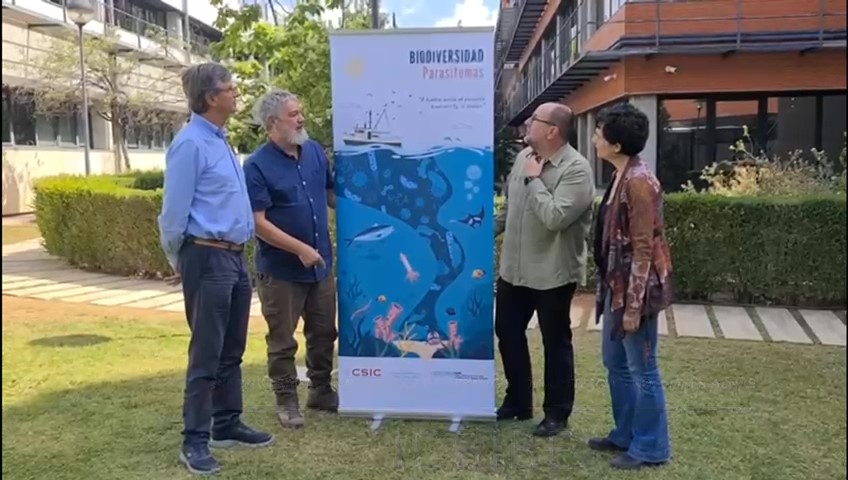The alliance of the Marine Zoology Unit of the Cavanilles Institute of Biodiversity and Evolutionary Biology (ICBiBE) of the University of Valencia with the Marine Ecology and Resources Group of the Institute of Marine Research (IIM-CSIC) of Vigo, Spain, highlights the importance of parasites of marine species through the strategy on the hidden biodiversity formed by parasitomes
As part of the celebration of International Biodiversity Day, the Marine Zoology Unit of the Cavanilles Institute of Biodiversity and Evolutionary Biology of the University of Valencia, located in the Science Park of the academic institution, has initiated an alliance with the Ecology and Marine Resources Group of the Institute of Marine Research (IIM-CSIC) with the aim of collaborating in the study of hidden biodiversity, formed by parasitomes.
"The alliance aims to work on a fraction of marine biodiversity that we conceive as hidden biodiversity. The sea is symbiotic in nature, and there we recognize that many species that, due to their non-symbiotic nature or their small size, go unnoticed by the general public. We are committed to working on deciphering the identity of these marine parasites and understanding the role and function they play in marine ecosystems," says Santiago Pascual, head of the Marine Ecology and Resources group at the Institute of Marine Research (IIM-CSIC).
"We intend to increase the scientific basis that exists on the biology of parasites, and also to know their current status, their interactions with humans and animals, and their role in ecosystems for their own relevance within the evolutionary legacy", Francisco Montero, researcher of the Marine Zoology group of ICBiBE
The Parasitomes strategy also aims to address the genetic biodiversity of species and populations, the development of molecular tools through genetic analysis "that allow us to reveal the large number of the most hidden parasites. "In short, what we intend is to share technical infrastructures and, above all, knowledge that allows us to value this hidden variability of the seas and oceans and seas," describes Elvira Abollo, principal investigator of the Ecology and Marine Resources group of the IIM-CSIC.
The collaboration of both groups aims to create a series of synergies between research groups and increase knowledge about organisms such as parasites. "We intend to increase the scientific basis that exists on the biology of parasites, and also to know their current status, their interactions with humans and animals, and their role in ecosystems due to their relevance within the evolutionary legacy. The generation of this catalog will also allow us to produce a coloring entity and future follow-up studies on the parasitic fauna and the changes that may occur in ecosystems", explains Francisco Montero, researcher of the Marine Zoology group of the ICBiBE.
With the aim of analyzing parasitic life, the Vigo research group already has more than 20,000 samples of parasites from all over the world with a certain order, destination and absolute traceability. "We intend to incorporate more databases to our biobank and have it perfectly standardized and protocolized," says Angel Gonzalez, head of the Marine Ecology and Biodiversity group of the IIM-CSIC.
"What we intend is to share technical infrastructures and, above all, knowledge that allows us to value this hidden variability of the seas and oceans and seas", Elvira Abollo, principal investigator of the Ecology and Marine Resources group of the IIM-CSIC
Raising awareness of biodiversity
May 22 was proposed by the United Nations to raise awareness about the importance of biodiversity, the concept that encompasses the wide variety of existing plants, animals and microorganisms, but also includes the genetic differences within each species that are born, grow and develop in a given ecosystem, including those that are not visible to the naked eye such as parasites.
"In order for all human beings to live in a more sustainable world, it is necessary to implement drastic and urgent measures that allow the protection and preservation of all ecosystems, as well as the biological diversity that inhabits them," recalls Juan Antonio Raga, coordinator of the Marine Zoology Unit at ICBiBE.


